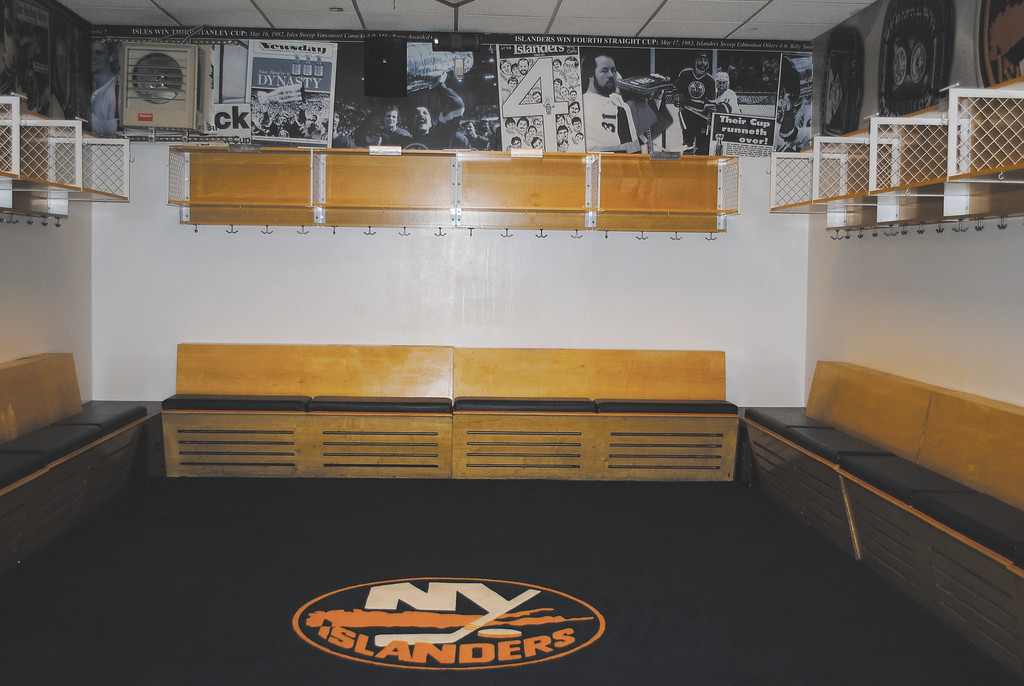Fate of Coliseum decided Aug. 1
$400 M bond to be voted by residents
On Monday, Nassau County residents will vote on a $400 million bond referendum to build a new Coliseum and a minor league ballpark.
The plan, which was first outlined to the public at a press conference held by County Executive Edward Mangano and Islanders Owner Charles Wang on June 22, calls for $350 million of the bond to be spent on a new Coliseum, with the remainder going to the construction of the ballpark. According to the lease the county signed with the Islanders, the team would lease the Coliseum from the county for 30 years, starting when the county’s current lease with MSG and the Islanders expires in 2015.
During that time, the county would get 11.5 percent of all money earned by the Coliseum through a revenue-sharing plan, which includes ticket, concession-stand and merchandise sales — everything except television contracts.
“This is a giant step forward for Nassau’s economy,” Mangano said at the press conference. “We’re once again becoming job-generating, and maintaining the quality of life we’ve become accustomed to by having a Coliseum here in Nassau County.”
According to Mangano, over the 30 years of the agreement, the new arena would generate $1.2 billion in revenue, and the revenue-sharing would pay the estimated $26 million-per-year debt service. By the end, Mangano said, the project should generate $403 million in surplus revenue for the county. The numbers come from an independent report compiled by Camoin Associates on behalf of the Nassau County Industrial Development Agency.
The debt service, however, would be borne by taxpayers. The bond would create a new tax line on residents’ property tax bills. Estimates of the average homeowner’s increase in taxes for the project vary from the original estimate of $58 a year to the most recent estimate of less than $14. Mangano said that the cost would be neutralized by the revenue coming in from the new arena.
The Camoin report also said that the new arena would be a catalyst for job creation in the county. The report stated that 1,515 temporary construction jobs would be created by the project, which in turn would bring in an estimated $848,000 in tax revenue.
After the new Coliseum is completed, it is expected to create 3,040 permanent jobs — 2,111 direct jobs at the arena and nearby businesses and 929 indirect jobs created by the spending of those with new jobs.
The lease agreement also stipulates that the Islanders pay a minimum of $14 million (minus any taxes) to the county each year as rent. The arena is also expected to bring in about $4 million annually in county taxes, meaning that the county would receive a minimum of about $18 million a year in revenue.
According to the lease, the remaining 77 acres of the Hub property would be left open to development. However, the lease states that there must be a minimum of 6,500 parking spots. That means that someone looking to develop the site would most likely need to construct a parking structure first, which could cost millions of dollars.
If the plan is not approved by voters, Wang is expected to relocate the team. If that happens, the Coliseum would likely close.
“Our home is Long Island. We want to be here,” Wang said at the June press conference. “We’re trying to work the best way we can. I know other attempts at doing this have failed. Not just during my tenure, by the way, but through all the years. I think we need to do this.”

 56.0°,
Overcast
56.0°,
Overcast 




